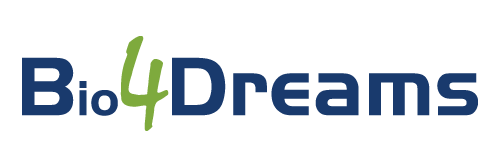NanoPhoenix: nanotechnologies at the service of Life Sciences
Nanotechnology is one of the most promising research fields of the last decade, involving the use of materials or structures on a nanometric scale for various applications.
Several of these applications are found in biotechnologies, for example, biosensors for detecting toxic molecules and antibody variants to target cancer cells.
In Life Sciences, nanotechnologies overcome the limitations of conventional methods, improving the quality and performance of materials and tools with greater customization. For example, in microfluidics, the ability to achieve nanometric sizes allows for the use of smaller quantities of samples and reagents, thereby reducing costs.
The advantages and potential of nanotechnologies make them a field of great interest, today and prospectively, for both the research world and the industry.
NanoPhoenix, nanotechnologies for le Life Sciences
In this context, a multidisciplinary team conceived the idea of combining their know-how in micro and nanofabrication processes, electrochemistry, microfluidics, and sensor technology into one reality: NanoPhoenix.
The startup was created to develop devices and micro and nanostructured surfaces with applications in Life Sciences, particularly in diagnostic and therapeutic fields.
NanoPhoenix specializes in three areas: substrates for cell cultures, microfluidic devices and lab-on-chips, and micro and nanoelectrodes and biosensors.
Substrates for cell cultures
These micro and nanostructured surfaces replicate the topography and physiological environment of the extracellular matrix.
Compared to traditional solutions, these substrates offer a greater active surface, which translates into better efficiency in adhesion, proliferation, and cellular differentiation. This makes them ideal for applications in studies of cell morphology, mechanobiology analysis, development of co-cultures, standardization of cell cultures, etc.
Microfluidic Devices and lab-on-chip
These are hydrophilic, non-absorbent, high-throughput, plug-and-play fluidic devices, useful in analyzing biological fluids for therapy and diagnosis, such as liquid biopsy.
Micro and nano electrodes and biosensors
These are devices that, thanks to nanometric printing, offer high resolution and uniformity for rapid and accurate analysis of biological samples in human, animal, agri-food, and therapeutic drug monitoring fields.
Fast, economical, and customizable solutions
For the development of these solutions, NanoPhoenix employs an innovative manufacturing technology, an evolution of Nanoimprint Lithography, which has the advantage of being fast, simple, versatile, accurate, and economical.
Additionally, the added value is the degree of customization: the startup is capable of developing micro and nanostructured devices and surfaces tailored to the needs and requests of the client, who can decide on dimensions, materials, geometry, and other parameters.
State of the arte
In addition to already being on the market with the service of developing customized micro and nano solutions, the startup is currently working with the China Regional Research Center – ICGEB to develop an innovative point-of-care (POC) device for the detection of circulating tumor markers, useful for early diagnosis and monitoring the effectiveness of therapeutic pathways.
“With NanoPhoenix, we enable researchers and businesses in the Life Sciences to access the benefits of nanotechnology with customized solutions.”
Alessandro Pozzato, CEO, NanoPhoenix
Updates
May 2022
🌐 The nano-phoenix.com website goes live, a project realized by the Bio4Dreams Communication Team.
March 2022
🆕 Founding of NanoPhoenix, an innovative startup dedicated to the design, development, and production of micro and nanostructured devices for Life Sciences.
📗 Learn more about NanoPhoenix and other entities in our portfolio.

